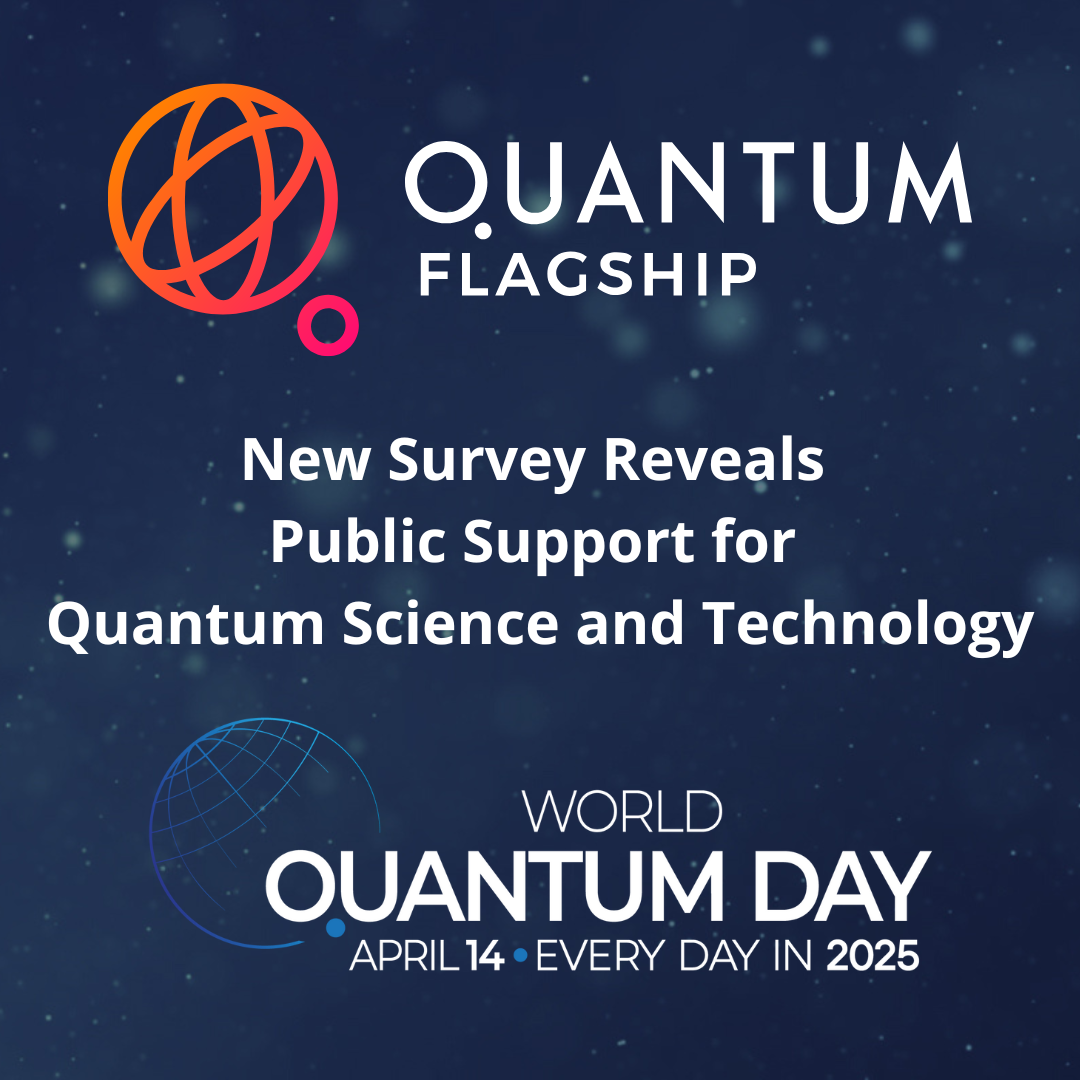
New Survey Reveals Public Support for Quantum Science and Technology
The first-ever European survey of public attitudes towards quantum science and technology was published on World Quantum Day - 14 April 2025. The online poll reveals growing public awareness and excitement about quantum science and technology. It found that most adults in France and Germany (78 %) are aware of quantum technology, and over half are excited about its potential to solve major societal challenges such as healthcare (53 %) while also expressing optimism for energy (47 %), cybersecurity (44 %), and climate change (41 %).
Quantum science — the study of quantum particles, the universe's tiniest building blocks — underpins many technologies we already rely on, from lasers and Magnetic Resonance Imaging (MRI) scanners to GPS and semiconductors. While the field is still emerging, the findings suggest growing public curiosity in how quantum technologies could help solve some of the world's biggest challenges. The European Union is investing over €1 billion in funding over ten years through its Quantum Flagship programme, launched in 2018 which supports cutting-edge research and innovation in quantum computing, communication, sensing, and simulation.
The new online survey, which was commissioned to mark World Quantum Day (14 April) and the United Nations' International Year of Quantum Science and Technology, shows that quantum awareness is very high in France and Germany, with 78 % of adults having knowledge of it. Conducted by YouGov, the survey was nationally representative and asked people in both countries what they know — and feel — about quantum science, offering a snapshot of public attitudes in Europe's two most populous countries.
Overall, 53 % of respondents said they were excited about the potential for quantum science and technology to help solve problems in healthcare — the most widely supported area — while others expressed optimism about its impact on energy (44 %), cybersecurity (44 %), and climate change (41 %).
When asked about its potential impact or risks, 47 % of all respondents said they believe quantum science and technology will have a positive or very positive impact on their country over the next five years. Only 4 % of those surveyed believed it would have a negative impact on their country over the next five years. There were some differences between the two countries polled, with 81% of Germans saying they were aware of quantum technologies, compared to 73 % of French adults.
Yasser Omar, President of the Portuguese Quantum Institute and representative of the Quantum Flagship, said: "This survey highlights the importance of World Quantum Day, which aims to spark curiosity and open up the world of quantum science to everyone. We need the public worldwide to understand how important quantum technology is for our future. People are already intrigued by the potential applications, from healthcare breakthroughs to contributing to tackling climate change. World Quantum Day invites everyone to join the conversation, discover what's happening, and imagine the future together."
While there is widespread awareness and support for quantum technology, only one-third (29 %) of those surveyed had a good level of understanding about what quantum science and technology is, and 49 % had heard of it but didn't know what it is.